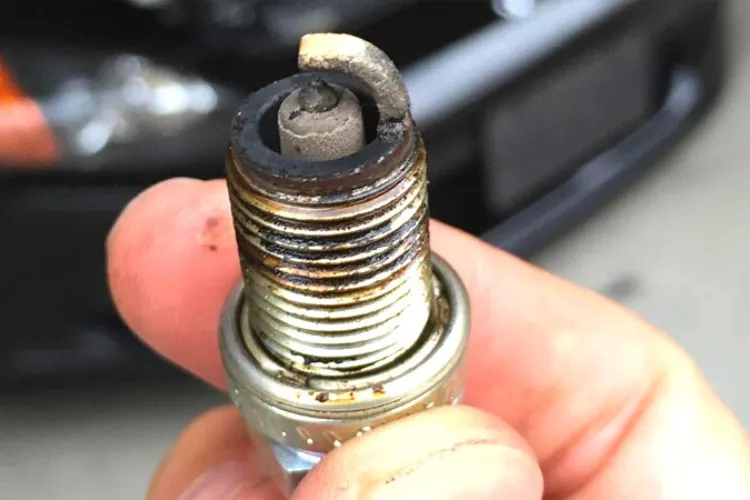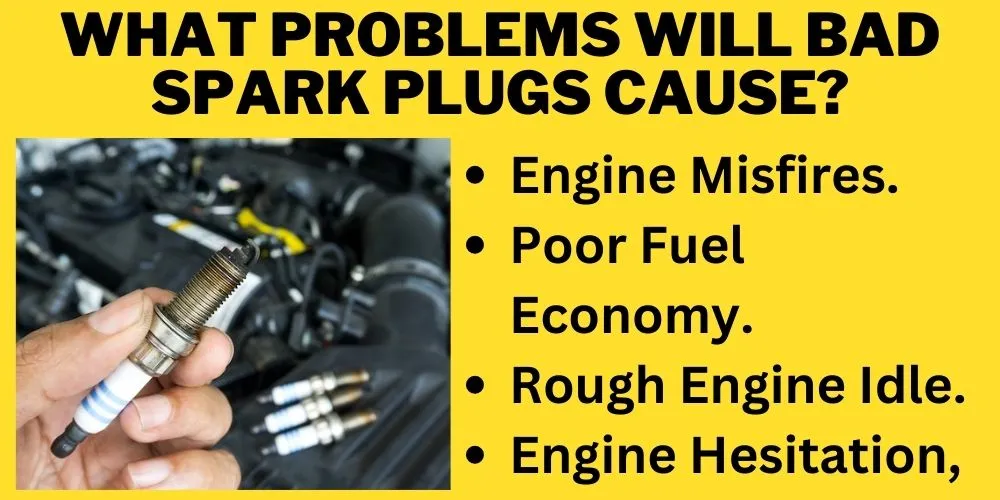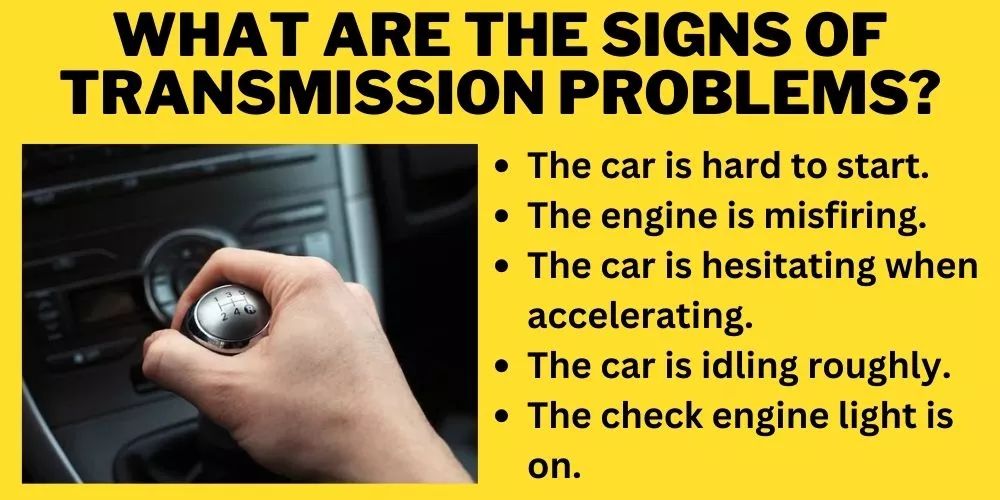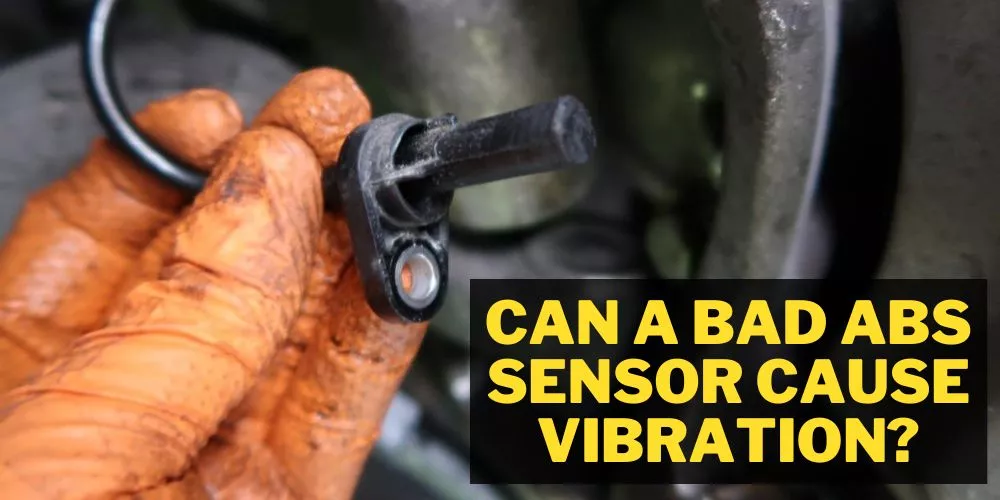A car’s engine needs two types of fuel to run properly – air, which gets through the intake manifold, and fuel, which it gets from the spark plugs attached to each cylinder. When the spark plug ignites the gas inside the cylinder, it creates power that turns the drive shaft and moves your car forward.
But, what if it goes bad? Can bad spark plugs cause transmission problems?
Yes, they can. In fact, if you want to avoid transmission problems in your car, and save money on costly repairs, then you need to have functioning spark plugs. You don’t have any other choices.

Contents
Can bad spark plugs cause transmission problems?
When a driver notices that their car is having difficulty shifting gears or has a hard time accelerating, it can indicate that their spark plugs have gone bad. Spark plugs are responsible for providing the necessary power to the engine.
If they go bad, they can affect the performance of other components such as the fuel system, the ignition system, and even the transmission.
There are plenty of indications that can alert drivers to this problem such as when their car is difficult to start up or run smoothly once it has been started.
What problems will bad spark plugs cause?
Over time, it’s not uncommon for spark plugs to begin to wear out and break down. If you notice that your vehicle isn’t performing as well as it used to, or that there’s an unusual burning smell when you start your car, spark plugs could cause these problems – so they should be checked immediately.

Engine Misfires
A bad spark plug can cause your engine to misfire. This means that you will be getting inconsistent power, which could lead to the car shutting down. To solve this problem, it is important to replace the spark plugs as soon as possible.
Poor Fuel Economy
One of drivers’ most common complaints about their vehicle is poor fuel economy. This can be due to several reasons, but one of the most common culprits is worn spark plugs.
Worn spark plugs will cause your engine to run less efficiently, which means that your engine has to work harder to get the same performance from a given task as it would with a new set of spark plugs installed.
This causes your engine to consume more fuel than it would otherwise have had to use to complete any given task, which results in a decrease in fuel efficiency and an increase in emissions.
Rough Engine Idle
A rough engine idle is a problem that a bad spark plug can cause. A spark plug produces a spark that ignites the fuel in the combustion chamber, and if it’s not firing properly, it will cause the engine to stall. The most common symptom of this issue is when your engine stutters or hesitates on acceleration.
An air leak can also cause this symptom, but you’ll notice that air leaks tend to make your car slower and less responsive, while a bad spark plug can have more noticeable effects like rough idle and stuttering on acceleration. Another sign of a bad spark plug is when your car has an erratic idle speed, so it’s running at different RPMs at all times.
Engine Hesitation
One of the most common problems that bad spark plugs can cause is engine hesitation. An engine will hesitate when it tries to accelerate and the car does not get any response.
When this problem occurs, it is often hard for the driver to keep a steady speed on the highway or stay within their lane. If an engine hesitates, it may be time to replace your spark plugs.
What are the signs of transmission problems?
If you’re experiencing any of these five symptoms of transmission problems caused by bad spark plugs, it’s time to get your vehicle checked out. Your vehicle hesitates when shifting gears. You hear loud noises coming from under the hood. The RPMs increase when you slow down. The transmission burns excessive amounts of oil.

The car is hard to start
If you notice that it is difficult to start the engine, then the problem may lie with your spark plugs. The plug may be worn out and not sparking correctly, leading to poor combustion and a hard time starting the engine. If this is the case, you will want to replace them with new ones as soon as possible.
Another sign of an issue with your spark plugs is if when you turn on the engine for a few seconds and shut it off again, there is black smoke from the tailpipe.
This may indicate that something in the fuel system went wrong or that one of your cylinders isn’t firing properly. Spark plug replacement should solve this problem.
The engine is misfiring
If you notice that the engine is misfiring or sputtering, this is a sign of a faulty spark plug. Check for oil around the ignition coil wires to tell if it is your spark plug.
If there are no noticeable leaks, this might indicate that you need new spark plugs. The other cause could be an issue with the fuel injectors, but that would more likely result in poor performance and engine stalling than misfiring.
The car is hesitating when accelerating
If you’re driving and the car hesitates or feels like it’s not accelerating properly, one of the first things to check is the condition of the spark plugs.
Spark plugs are a major part of an engine’s ignition system that help fire up fuel. If you notice any difficulties with your acceleration, be sure to stop at a service center immediately to have them check out the condition of your spark plugs.
For more details, visit our blog post 5 Signs Your Car Has Transmission Problems Caused By Bad Spark Plugs for more information on when to change your spark plug.
The car is idling roughly
If you notice a change in how your car idles, it could mean that one or more of the spark plugs is faulty. A plug is not firing properly can cause rough idling and a loss of power.
A good test for this is to take out the plug wire from the cylinder and then try to start the engine. If it starts, then there’s a problem with that cylinder and you should get it replaced.
The check engine light is on
The check engine light is a warning light on your car’s dashboard that indicates one or more of the following: a serious mechanical issue with the engine, an emissions problem, or a need for service.
It can sometimes be hard to tell what’s causing it to come on, but there are five common reasons why it might happen. One of those reasons is if you have faulty spark plugs, which can cause problems with transmissions and other parts of the engine.
How do you fix transmission problems?
Car transmissions make our lives easier in many ways, but as anyone who has had to deal with transmission problems will tell you, they don’t always work as well as they should. Fixing your car’s transmission problems can seem daunting, but fortunately, you don’t need to be an auto-mechanic to get the job done right.
You can do several different things to quickly and easily fix your transmission woes on your own. Here are three of the best fixes you can try today!

Check the Fluid Level
Checking your fluid levels is the first step in fixing your transmission problems. If you’re low on fluid, your car will not shift into gear. This can be fixed by topping off the fluid and starting your car to see if it shifts into gear. You’ll need to take it in for a full service if not.
Check for Leaks
If you want to ensure that your car is not leaking transmission fluid, you can simply check the fluid level in your transmission. If the level is low or there is a pool of fluid beneath your vehicle, it may be time for a replacement. A leaky transmission can lead to costly damages and repairs, so it is important to fix any leaks as soon as possible.
Conclusion
The spark plugs in your car help ignite the gas in your engine, creating the power to turn the wheels and get you where you need to go. Since spark plugs control the ignition timing of your engine, they must be in good working order at all times, but these components can break down over time as they accumulate wear and tear.
Suppose your car’s transmission has begun shifting roughly or accelerating slowly. In that case, this could indicate that one or more of your spark plugs is causing damage to other important parts of your engine, including the transmission itself.


